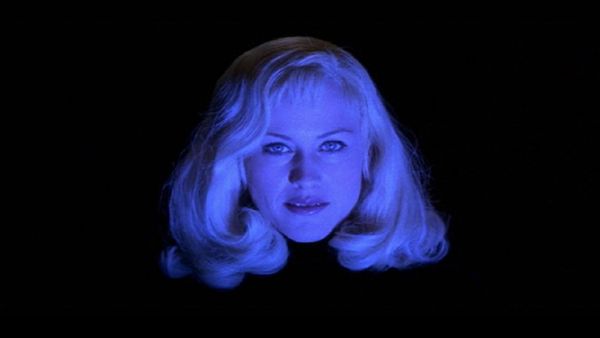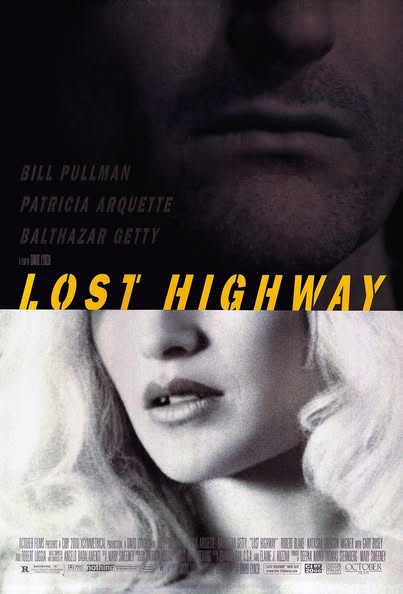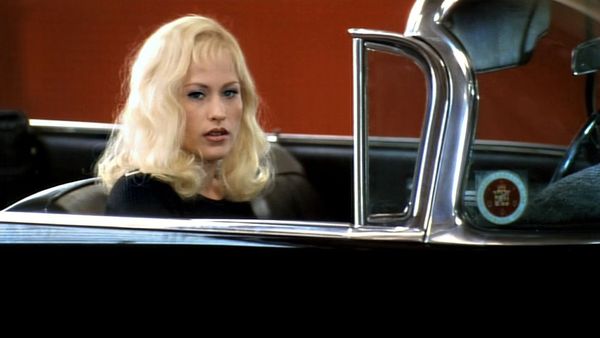Lost Highway (1997)

Lost Highway is a 1997 neo-noir psychological thriller directed by David Lynch, known for its surreal storytelling and haunting visuals. The film is often regarded as one of Lynch’s most enigmatic works, blending elements of mystery, horror, and the exploration of identity. It features a complex narrative structure that challenges viewers to piece together its fragmented story.
The film begins with a man named Fred Madison (Bill Pullman), a jazz musician who receives mysterious videotapes of himself sleeping. As paranoia sets in, Fred struggles with his relationship with his wife, Renee (Patricia Arquette). The narrative takes a dark turn when Fred is accused of murder, leading to his imprisonment. However, the film shifts dramatically as Fred inexplicably transforms into a young mechanic named Pete (also played by Pullman) after being incarcerated.

As Pete, the film introduces a new storyline involving a relationship with a woman named Alice (also portrayed by Arquette), who resembles Renee. This duality of characters and the shifting realities contribute to the film’s exploration of themes such as identity, memory, and the nature of reality. The narrative’s non-linear structure and dreamlike sequences create a sense of disorientation, reflecting Fred’s psychological turmoil.
Lynch’s visual style in Lost Highway is striking, with cinematography by Peter Deming that captures both the bleakness of the urban landscape and the surreal moments that punctuate the story. The film features stark contrasts between light and shadow, enhancing the mysterious and often unsettling atmosphere. Lynch’s use of sound design is also noteworthy, with a haunting score by Angelo Badalamenti that underscores the film’s emotional weight and tension.

The performances are compelling, particularly Bill Pullman, who navigates the complexities of his dual roles with depth. Patricia Arquette delivers a captivating performance, embodying the duality of her characters and the emotional turmoil each experiences. The film also features memorable supporting performances, including Robert Blake as the enigmatic Mystery Man, whose chilling presence adds to the film’s tension and uncertainty.
Lost Highway delves into themes of alienation, the fluidity of identity, and the psychological impact of trauma. Lynch invites viewers to interpret the film in various ways, often leaving questions unanswered and embracing ambiguity. This approach has led to diverse interpretations and discussions among audiences and critics alike.

Upon its release, Lost Highway received mixed reviews, with some praising its innovative style and others finding it difficult to follow. Over time, however, it has gained a dedicated following and is often analyzed for its complex themes and unique narrative structure. The film is frequently cited as a significant entry in Lynch’s filmography, embodying his distinct approach to storytelling.
In conclusion, Lost Highway is a captivating and unsettling film that challenges viewers to engage with its labyrinthine narrative and explore the depths of identity and reality. With David Lynch’s signature visual style, strong performances, and a haunting score, the film remains a thought-provoking piece of cinema that continues to resonate with audiences. Whether seen as a psychological thriller, a meditation on identity, or a surreal exploration of the human psyche, Lost Highway is a memorable and impactful cinematic experience.











